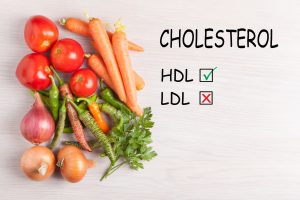 Cholesterol is a waxy, fat-like substance that is produced by the liver and used by the body to help make cells, hormones, and vitamin D.
Cholesterol is a waxy, fat-like substance that is produced by the liver and used by the body to help make cells, hormones, and vitamin D.
High cholesterol occurs when there is too much of this fatty substance in the blood. Although high cholesterol can be inherited, it is often caused by unhealthy lifestyle choices.
A buildup of fatty deposits in our blood vessels can lead to serious health problems such as heart disease or stroke. Therefore, it is important to make changes to our lifestyle to reduce the risk of complications.
Improving our diets is a good place to start, and that involves avoiding or limiting the following foods:
- Fried foods
- Processed meats
- Baked goods made with butter or shortening
- Dairy products made from whole milk
- Red meat
- Organ meat
- Saturated vegetable oils such as coconut oil or palm oil
- Food made with hydrogenated oil
Adding these foods to your diet can help reduce high cholesterol levels:
- Fruits that are rich in pectin such as apples, grapes, and strawberries
- Oats
- Whole grains
- Nuts
- Legumes
- Fish rich in omega-3 fatty acids such as salmon
Other lifestyle changes you can make to improve cholesterol levels are exercising at least 2 ½ hours each week and reducing stress.
If you are at risk of developing high cholesterol, speak with your physician about taking steps to reduce your levels. Your doctor’s treatment plan may include adhering to a healthy diet, working out regularly, or taking medications.
All content of this newsletter is intended for general information purposes only and is not intended or implied to be a substitute for professional medical advice, diagnosis or treatment. Please consult a medical professional before adopting any of the suggestions on this page. You must never disregard professional medical advice or delay seeking medical treatment based upon any content of this newsletter. PROMPTLY CONSULT YOUR PHYSICIAN OR CALL 911 IF YOU BELIEVE YOU HAVE A MEDICAL EMERGENCY.
